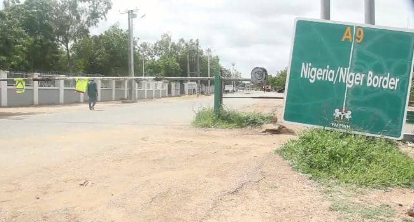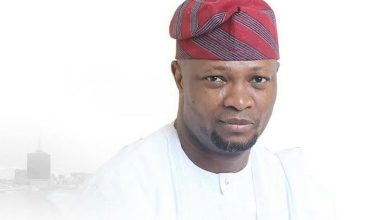National Assembly criticizes ineffectiveness of Nigeria’s Border Closure policy

The National Assembly’s Joint Committee on Industry, Trade, and Investment has sharply criticized Nigeria’s border closure policy, labeling it ineffective in curbing cross-border crimes such as smuggling and banditry. The lawmakers voiced their concerns during the 2025 budget defense session with the Ministry of Industry, Trade, and Investment, pointing to ongoing security and economic challenges linked to the porous nature of Nigeria’s borders with neighboring countries.
Senator Francis Fadaunsi, Chairman of the Senate Committee on Industry, described the current policy as counterproductive. He argued that rather than deterring smuggling, the closure has exacerbated the issue, harming economic growth. Citing rice production as an example, he explained that local producers only manage to supply 3 million tonnes of rice out of the 7 million tonnes required, leaving a significant shortfall that is filled by smuggled goods. According to Fadaunsi, “Border closure is hampering the economic fortunes of the country because rather than curb smuggling, it encourages it.”
Supporting this view, Hon. Fatima Talba, representing Nangero/Potiskum Federal Constituency in Yobe State, said the borders appear open due to the unrestricted movement of people and criminals. “We must stop deceiving ourselves about border closure,” she stated, emphasizing the need for realistic solutions to border security. Hon. Paul Kalejaiye from Ajeromi/Ifelodun Federal Constituency in Lagos State questioned the inconsistent enforcement of the policy, asking whether it applies uniformly or selectively in different regions.
In response to these concerns, the joint committee, chaired by Senator Suleiman Sadiq Umar (APC, Kwara North), urged the Minister of Industry, Trade, and Investment, Dr. Jumoke Oduwole, to consult with the Presidency to reassess the border closure policy and develop a comprehensive approach to address the nation’s border security challenges.
During her budget presentation, Dr. Oduwole outlined proposed expenditures for 2025, including N3.8 billion for capital projects, N4.65 billion for personnel costs, and N1.45 billion for overhead, with a projected revenue of N24 billion. However, lawmakers raised concerns over a budget discrepancy involving a project initially allocated N50 million but later awarded for N59 million. The minister attributed the difference to a typographical error, but the committee demanded that the error be corrected before the budget could be approved.
The session reflects growing frustration over Nigeria’s border management strategies and fiscal accountability. Lawmakers reiterated the need for practical, enforceable policies to boost economic stability and enhance national security, warning that ineffective measures would only deepen the country’s existing problems.





